An intriguing aspect of the early evolution of Islamic architecture was the phenomenon of converting churches and temples into mosques. This Muslim interim architectural preference existed mainly in the established cities and settlements to which the Muslims came and where they eventually settled like, for example, Damascus, Homs and Aleppo in Syria, Jerusalem in Palestine, and some Persian cities in Iraq.
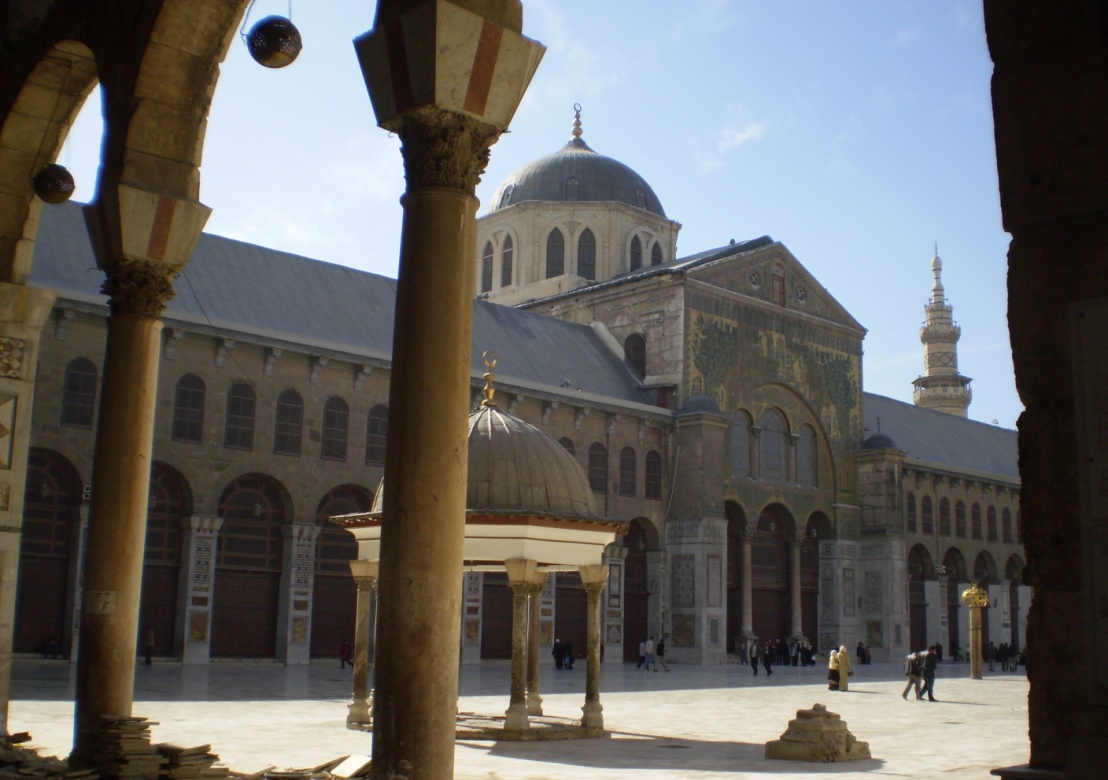
K.A.C. Creswell went so far as to allege - baselessly though - that there is no reason for believing that any mosque was built as such in Syria until the time of the Umayyad caliph al-Walid b. Abd al-Malik or possibly his father Abd al-Malik b. Marwan. The only thing that the Muslims had during that period of time were the churches which they had turned into mosques.
Historians are unanimous that upon opening a new territory to Islam (fath) and upon overcoming the resistance of an enemy - if there was any - one of the immediate things that the Muslims normally did was making a peace treaty with the local population. In the treaty, the local population was always given an assurance of safety for themselves, their property and their places of worship, provided they did not oppose or harm the Muslims, nor obstruct the free preaching and practicing of Islam.
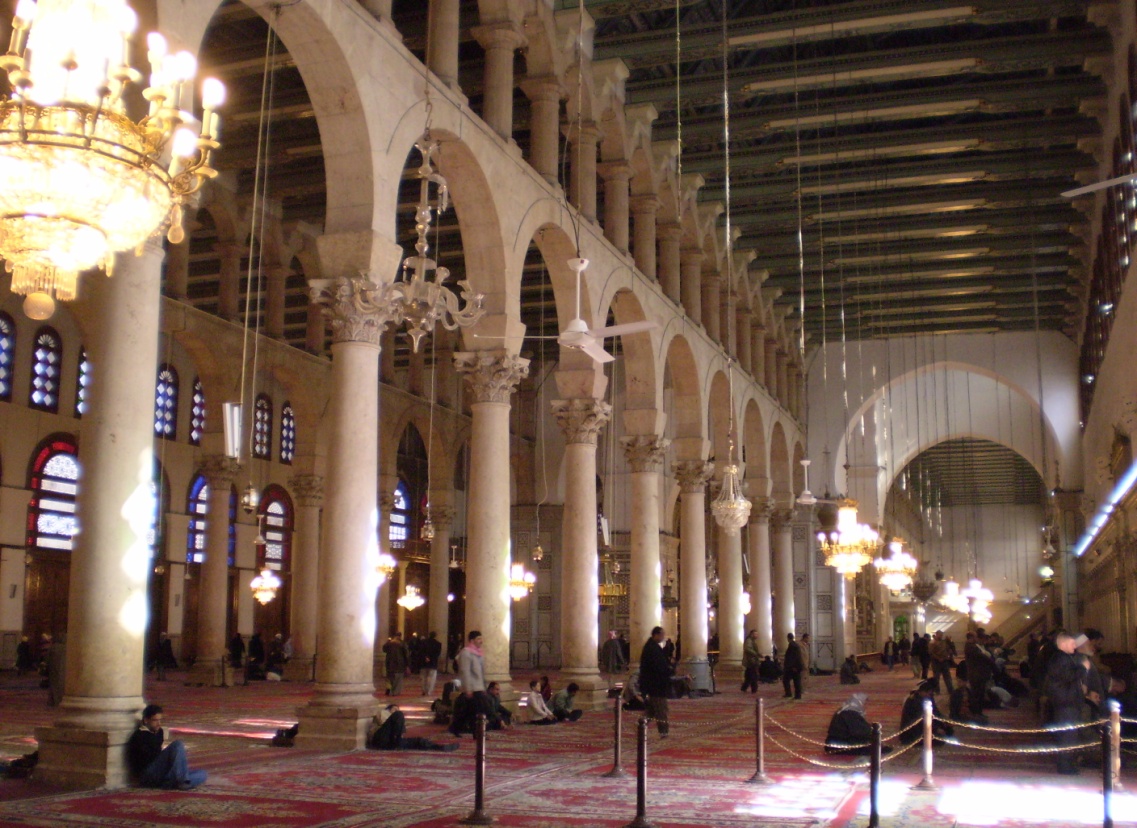
They were promised that the Muslims will inhabit or utilize neither their houses nor the places of worship, except that which they had already given up and left standing alone and idle. In addition, the Muslims always assured the locals that there will be no destruction of property and that nobody will be forcibly converted to Islam.
What the Muslims were doing, as a matter of fact, was the continuation of the Prophet's traditions that stemmed from nowhere but the contents of the Qur'an. It is an Islamic norm that there cannot be a forceful conversion because "...truth stands out clear from error" (al-Baqarah, 256). People are to practice the religion of their own choice.
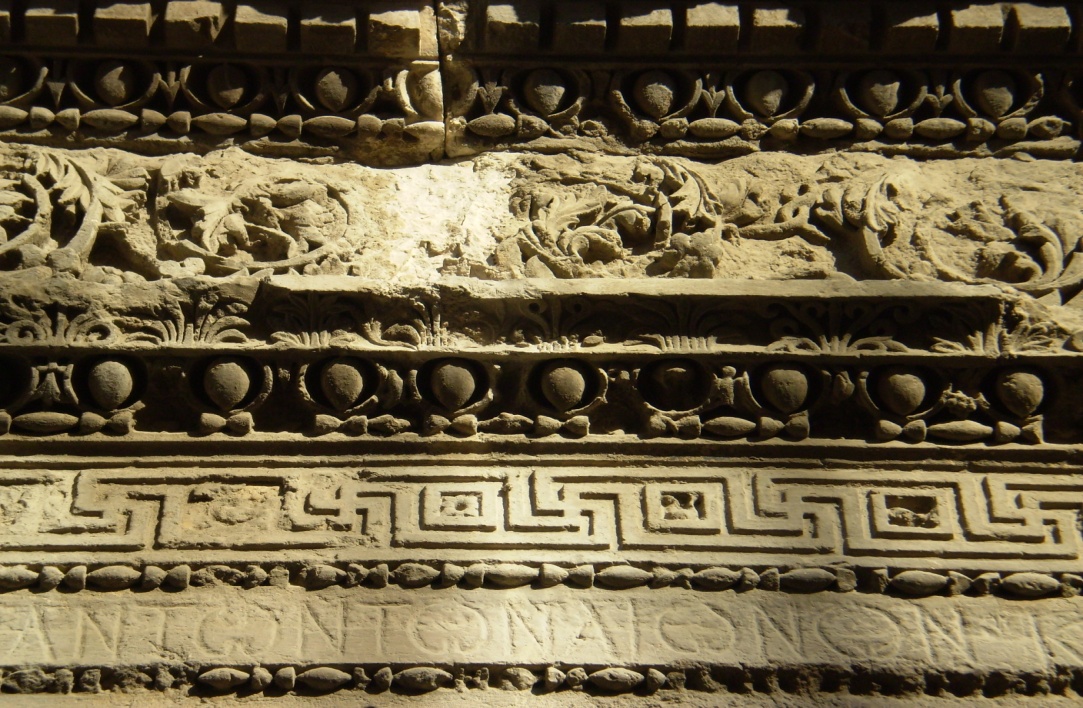
According to the Qur'an, furthermore, Muslims are duty-bound to protect the places of worship of non-Muslims who live under their authority and to allow them to observe their religious ceremonies: "Did not Allah check one set of people by means of another, there would surely have been pulled down monasteries, churches, synagogues, and mosques, in which the name of Allah is commemorated in abundant measure. Allah will certainly aid those who aid his (cause);- for verily Allah is full of Strength, Exalted in Might, (able to enforce His Will)" (al-Hajj, 40).
When the Prophet (pbuh) concluded a contract with the people of Najran, the contract contained the following provision: "Najran and its neighboring area are in the security of Allah, the Almighty, and His Messenger. The property, religions and churches of the inhabitants, as well as properties, whether much or little, are under the protection of the Prophet."
The Prophet (pbuh) also said: "On the Day of Judgment I will dispute with anyone who oppresses a person from among the People of the Covenant, or infringes upon his right, or puts a responsibility on him which is beyond his strength, or takes something from him against his will" (Sunan Abi Dawud).
Rationalizing the phenomenon
In view of the essential nature of Islam, in general, and in view of the essential qualities of Islamic architecture, in particular, converting churches and temples into mosques, or simply sharing them with the local non-Muslim population, was not at all a strange or an abominable thing. That can be explained in the following way.
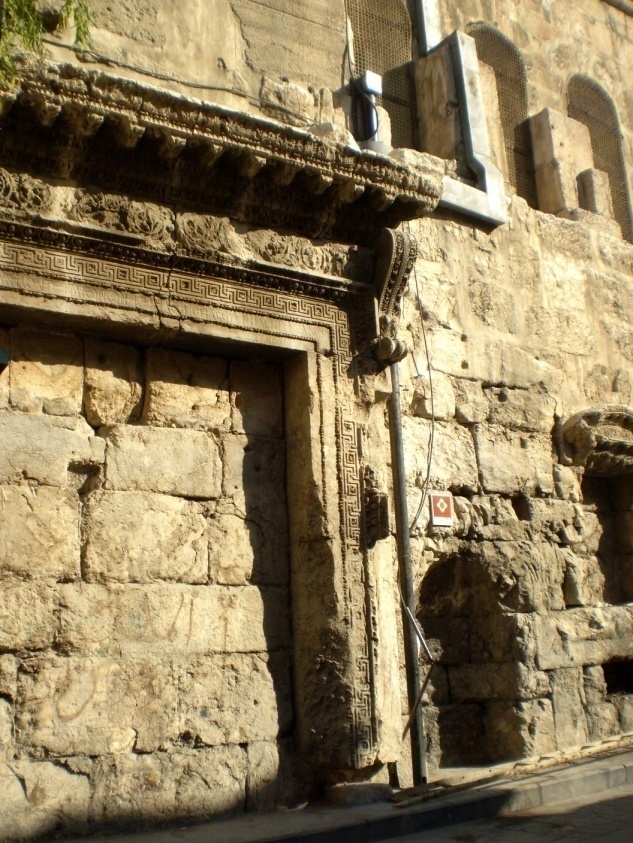
After the exodus of some of the users and custodians of the mentioned edifices, and after the others had embraced Islam, such buildings lost their purpose and function and were left virtually idle. On losing their intended functions, those buildings were reduced to mere dead matter, which Islam not only has no reason to voice any objection against, but also views it as part of nature and of the universal web of existence and as such, as God's faithful servant. It is an Islamic tenet that absolutely everything in the universe - except a group of rebellious people and jinn - worships God, incessantly and in unison glorifying and singing praises to Him as everyone's and everything's Creator, Master and Sustainer. They do so in ways unknown to us.
It mattered little how those churches and temples were created, positioned and its spaces arranged, for they certainly could meet the moderate material requirements of Islamic worship - of course, after some minor adjustments and after some man-made sacrilegious elements had been neutralized or removed. It is true that some inconveniences were caused by converting such structures into mosques, however, they were pretty inconsequential when contrasted with the potentially repulsive consequences that would have been brought about if, for instance, they were left completely idle, or demolished out of religious bigotry, or if some new unneeded buildings were constructed on the foundations of some old ones which were pointlessly torn down.
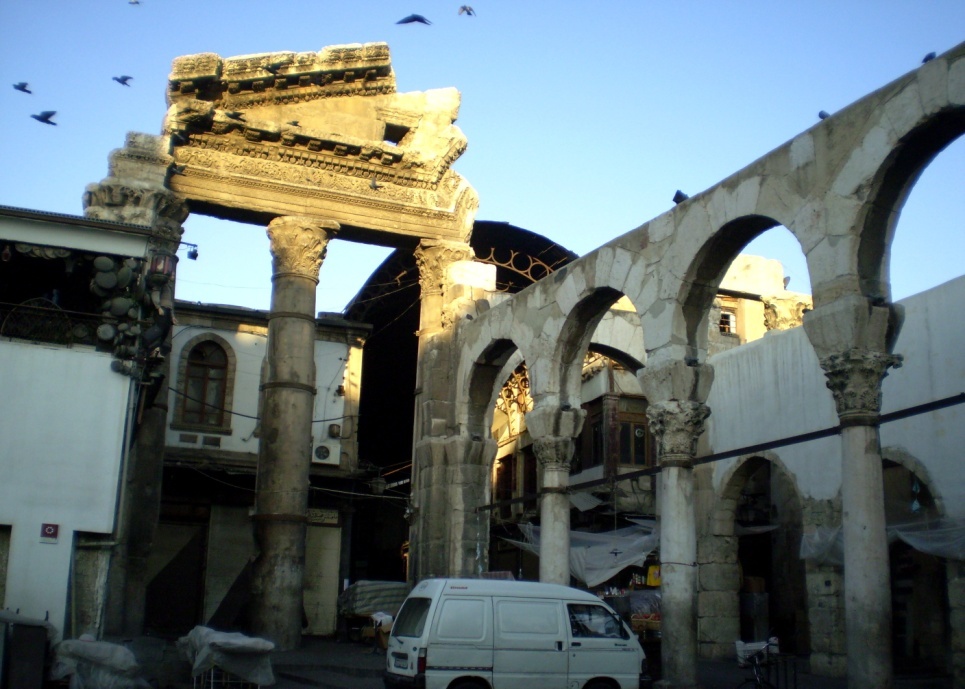
If some of the latter actions were carried out, some of the transgressions that might have been perpetrated are wastefulness, haughtiness, ostentation, intolerance and mismanagement, all of which Islam regards as major vices. Also, as a result of committing some of these wrongdoings, the people in the new territories would have been more and more alienated from Islam and its call. They would have developed an aversion to it, Muslims and the Muslim community (Ummah), and to the prospects of projected integration.
Upholding peace, justice and respect
While avoiding destruction of infrastructure in the new Muslim territories, especially the places of worship, plus making full use of them for the noblest of Islamic purposes, i.e., worship, the Muslims made two major contributions for the good of the future of Islam.
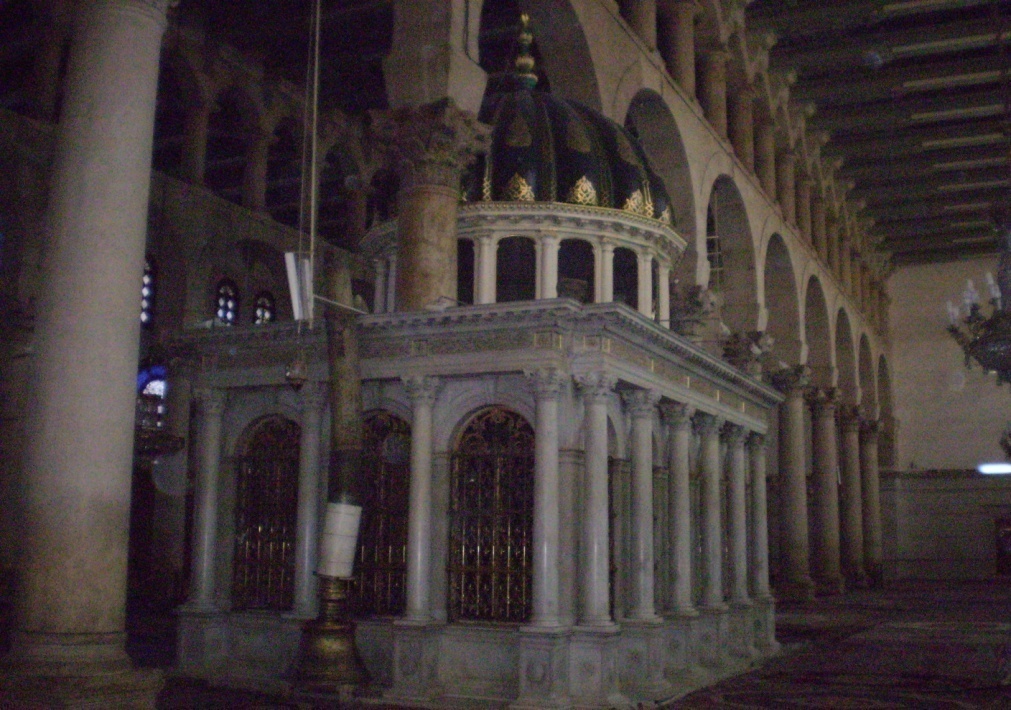
Firstly, while preaching the values and teachings of Islam to others, inviting them to embrace them, the Muslims led by example in walking their talk and in applying those values and principles in their own dealings, which certainly appealed to non-Muslims and made the peaceful spreading of Islam and the peaceful integration of others into the body of the Muslim community (Ummah) a much easier proposition. Definitely, destroying churches and temples, used or unused, would have been against the very spirit of Islam which Muslims were supposed not only to talk or write about, but also to exemplify in everything they did.
Secondly, the Muslims procured much respect from the local population because by using or sharing their churches and temples, they demonstrated the natural, tolerant and pragmatic character of the Islamic message that honors man: his primordial nature and his myriad intrinsic abilities and talents, doing its best to nurture and uphold human dignity at all times. People admired the fact that Islam sees no person, or a thing, or a human achievement, as inherently wicked. Wicked are only the persons, things or human achievements that are false, vicious, erroneous and cloaked in non-belief, sacrilege and sin.
All the persons, things and human achievements that have been defiled by non-belief and sin can easily be returned to their original pure states by merely removing and eliminating the cloak. In Islam, it follows, everyone and everything possesses a potential to change, or to be changed, and to be set right. The current conditions in a community and its cultural and civilizational propensities and accomplishments are by no means an obstacle towards the goals of change and improvement. Saying otherwise plainly contravenes the quintessence of the Islamic ethos.
Thus, by appropriating or even sharing the churches and temples of the local population who were less and less in need of them, the Muslims signaled their utmost respect for those people's humanity, as well as their appreciation for the latter's valuable cultural and civilizational exploits.
Moreover, while offering the locals a chance for a new refreshing spiritual beginning in Islam, the Muslims expressed their outright refusal to pass a judgment of failure, or loss, upon anyone or anything. Allah is the only and supreme Judge in matters pertaining to the ultimate failure or success.
The people admired, furthermore, that the worldview from which such splendid practices originated was fully and transparently practiced right in their midst and in front of their own eyes by the people who viewed themselves not as pretentious conquerors or invaders, but rather as mere servants of Allah entrusted with the task of conveying the heavenly universal message to the rest of mankind, knowing all too well that such a momentous mission could only be fulfilled through the ways and means anchored in the principles of wisdom, beautiful counsel, tolerant interactions, justice and dialogue.
The churches and temples that were transformed into mosques basically retained their original form, but their functions and roles under the novel circumstances completely changed, something like what befalls a person when he or she discards his or her old religion or ideology and embraces Islam instead.
As the reverts to Islam before they alter their life course, misappropriate and gravely mismanage the gifts and "loans" which the Lord and Cherisher of every creature has bestowed on them, so do the communities which in favor of some other religious or ideological preferences en masse reject submitting to and worshipping the only God, Allah, misuse the environment and its resources while planning and building the places of worship in response to the calls of their surrogate beliefs and religious ceremonies.
In that manner, people's innate faculties and talents are misused too. The Qur'an warns thus: "And do not pursue that of which you have no knowledge. Indeed, the hearing, the sight and the heart - about all those (one) will be questioned (al-Isra', 36).
Setting things right
By subjecting this kind of structures to serving the objectives of Islam, things are only aimed to be set right and the perfect natural equilibrium restored.
The earlier functions and services of the appropriated and converted edifices were not compatible with the spiritual disposition of the components of the natural environment which they coexisted with. Nor were they compatible with the spiritual disposition of both the natural resources, upon which people inevitably draw for creating and sustaining built environments, and the spaces those buildings occupied, because each and every element in nature, the most splendid and most insignificant in equal measure, denotes a faithful and obedient servant of Allah, ceaselessly worshipping and glorifying Him, as the Holy Qur'an on a regular basis reveals.
Prophet Muhammad (pbuh) once said that the heavens weep because of a person to whom Allah gave a healthy body, an ability and ample means to enjoy eating and drinking, as well as a comfortable life, but he behaves unjustly towards people. The Prophet (pbuh) described such a person as violent, cruel and wicked (Tafsir Ibn Kathir).
Prophet Muhammad (pbuh) also said that when a wicked and misguided person passes away, all human beings, the land, animals and trees enjoy a moment of respite from him or her and his or her misdeeds (Sahih al-Bukhari).
Certainly, not only to the biologically deceased individuals does the message of this Prophet's tradition (hadith) apply, but also to those who are still alive but whose wrongdoings have become completely nullified by their return to Islam, the religion of human nature and disposition (fitrah). In other words, the religious and ideological death of a person could also be deduced therefrom.
In a way, such people, together with their fallacious beliefs and practices, have "died", in the sense that they have departed from one "world", state and context, to another ones: from those which are characterized by the rejection of truth, deceit and the misappropriation of God's benevolence and incalculable favors given to man, to the ones where only Allah is acknowledged as God and Master of every creation to Whom alone our unconditional love and worship are due.
This, furthermore, partly applies to situations where misguided persons refuse to rectify their erroneous spiritual slants and deeds, but the scope of their influences over the realities of life becomes if not totally suppressed, then significantly diminished.
At any rate, when those people "depart" or "die", regardless of whether that happens in the actual or metaphorical senses of the word, both physical and spiritual damage they used to inflict on the earth are to be repaired. Such is to be done by whatever lawful means and media and as much as possible by those who possess the true understanding of things and walk on the face of the earth responsibly as its guardians and trustees (God's vicegerents).
It is only through this prism that the historical phenomenon of converting churches and temples into mosques ought to be observed, lest confusion and misunderstanding should arise.